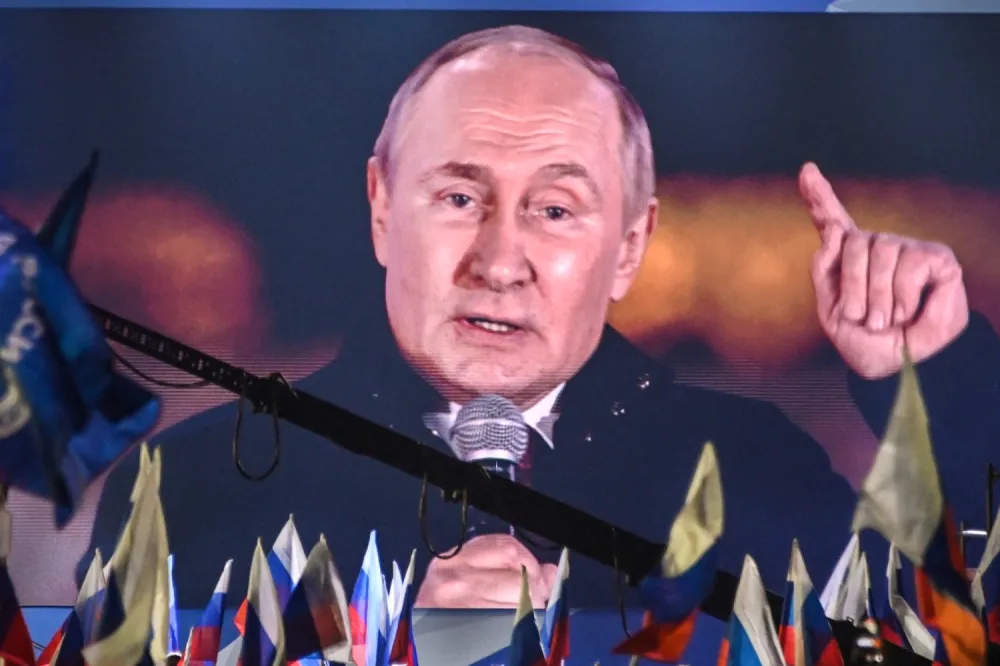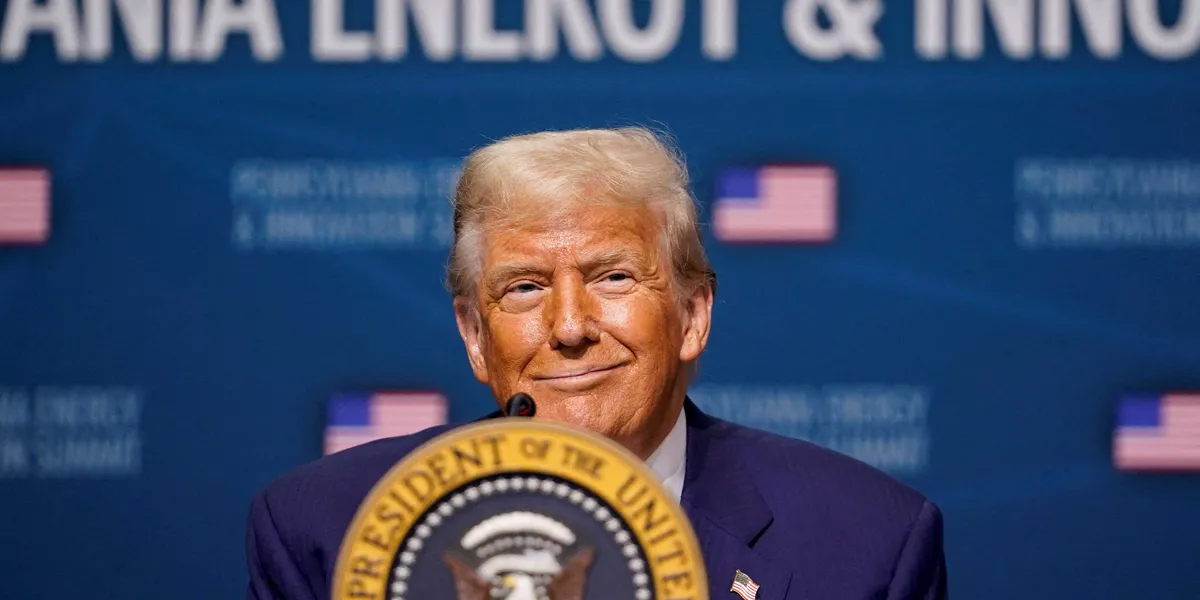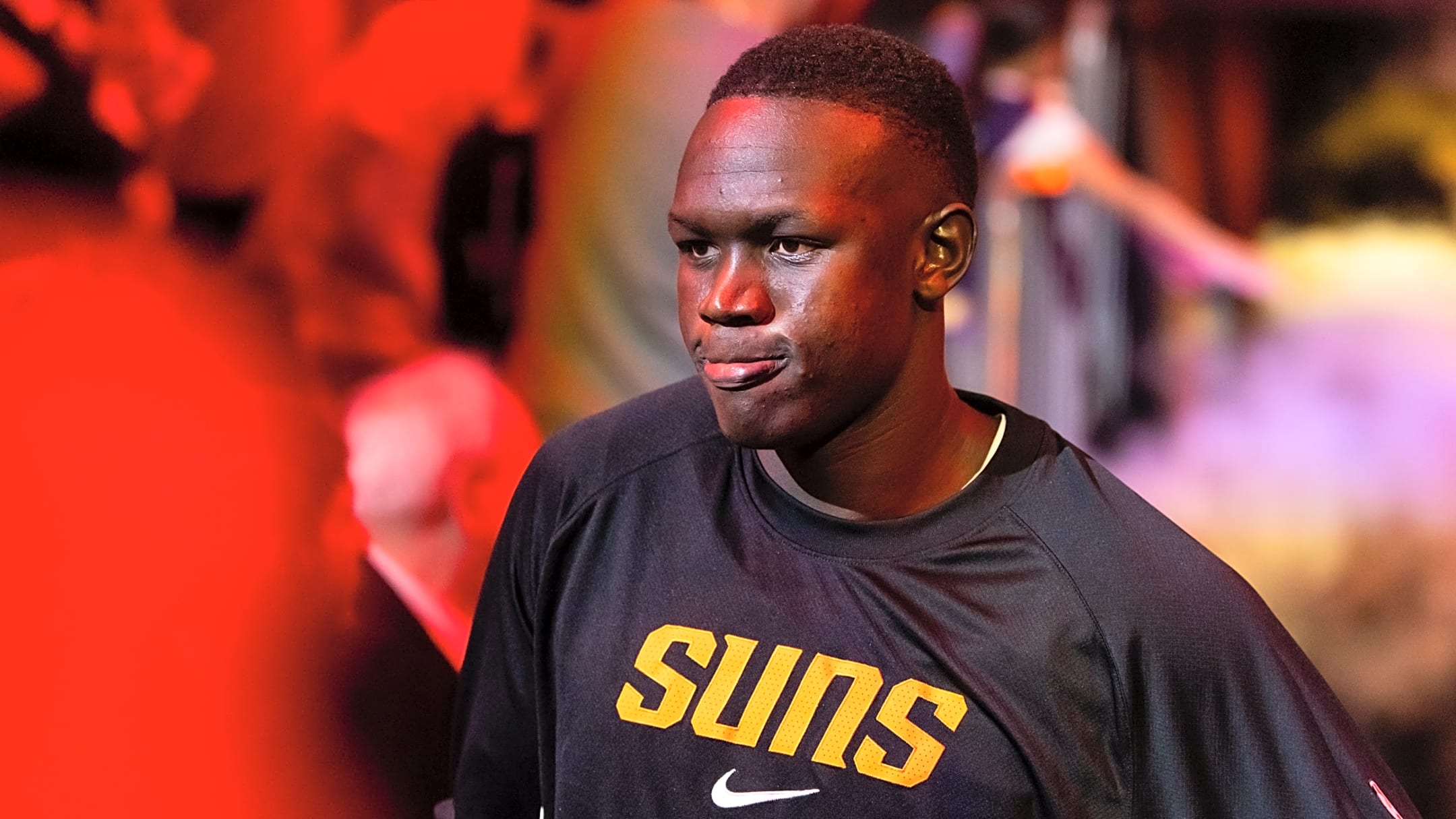Copyright Foreign Policy

For years, there has been one guiding throughline to U.S. policy regarding Russia’s invasion of Ukraine. It wasn’t necessarily about allowing Ukraine to reclaim all of its territory, and it certainly wasn’t about a defeat of Russia outright. Instead, the West’s strategy centered on convincing Russian President Vladimir Putin that his invasion of Ukraine would ultimately fail. If Putin could be convinced that his dreams of reconquering Ukraine would never succeed, then a path to negotiation—to a stable cease-fire and even to potential peace—could be found. In a vacuum, it’s a sound strategy. As with any geopolitical tussle, there would theoretically come a point when even Putin would throw up his hands at the quagmire and realize he could not succeed. Maybe it would come after a certain number of Russian troops died. Maybe it would come after the Russian economy tumbled headlong off a cliff. Maybe it would come after yet another Russian client or ally elsewhere crumbled, with Moscow unable to do anything to help. But almost 12 years after Putin first launched his invasion of Ukraine and almost four years since its full-scale expansion, one thing is now inescapably clear: Putin will never come to that conclusion. There is no amount of arms, matériel, or support that the West can give Ukraine that will dissuade Putin from his ultimate vision of reunifying Kyiv and Moscow and of seizing Ukrainian sovereignty for his own. Putin is so saturated in conspiracy theories, historic illiteracy, and obsessions with his own legacy that there is no cost he won’t bear to fulfill his obsession with seizing Ukraine for himself and restoring Russia to the great-power status it supposedly deserves. This reality—that there’s no way to actually deter Putin from his belief that he will ultimately be victorious—is a tragedy, not least for Ukraine. But it’s also one that opens new opportunities and points the way for success not only in Ukraine but in beating back Russian revanchism, once and for all. [hrthin] The evidence that Putin will never give up his dream of reconquering Ukraine is legion. Look, for instance, at the most recent rounds of back-and-forth between the Kremlin and the White House. In the ill-starred Alaska summit between Putin and U.S. President Donald Trump in August, the Russian leader dismissed Trump’s offers—recognizing Russian control of Crimea, granting Russia control of the Donbas, and much more—out of hand. Instead, Putin went on another of his now-infamous historical soliloquys about the supposed “brotherhood” between Russia and Ukraine, miffing Trump and scuttling negotiations. The United States even canceled plans for a follow-up summit in Budapest, largely because Moscow continued to demand that Washington address the “root causes” of the war. These causes, according to Putin, have nothing to do with specific territorial concessions or even Ukraine’s status in NATO but with the fact that Ukraine, as a supposed core part of the “Russian world,” prefers to join the West—a preference that, in the eyes of Putin, cannot stand. None of this, it’s worth saying, is new. Putin has been spouting these inanities for years. His obsessive, almost messianic convictions about Ukraine stretch back decades, alongside his beliefs that Ukraine is simply a wayward pawn rightfully belonging to Russia. Nor is this necessarily unique to Putin himself; for nearly two centuries, Russians have consistently lied to themselves that Ukraine is, and ought to be, part of Russia proper. But there are key difference between Putin pushing all of these claims then and continuing to regurgitate them now. Just scan through everything that has happened over the past few years. The Russian economy has careened toward stagnation, if not outright collapse. Russia itself has lost more troops than all of its wars combined since World War II, magnitudes more than the United States ever lost in Vietnam, and may well end up losing more troops than the United States even lost in World War II. Fantasies of Ukrainian fracture and of Ukrainians welcoming Russians with open arms have proved farcical. Meanwhile, thanks to his morass in Ukraine, Putin has watched Russia’s geopolitical standing disintegrate, exposing Moscow as a declining regional power. With his troops bogged down in Ukraine, Putin could do nothing while Azerbaijan barreled into Nagorno-Karabakh, gutting Russian influence in the South Caucasus. Putin could do nothing when Syrian rebels finally closed in on Bashar al-Assad’s regime, dissolving Russian influence in the Middle East. Now, in Venezuela, Putin is forced to stand by while the U.S. vise closes around Nicolás Maduro—one of Moscow’s longest-standing allies, not just in the Americas but globally. All of this while Moscow turns into a junior partner—and potentially even vassal—of a far more powerful China. The entire war has been, as one analyst said, a “strategic nightmare” for Putin. Yet, even with all of this, the Russian dictator has not wavered from his ultimate, maximalist designs. He has not dropped his monomaniacal fixation on conquering Ukraine and on cementing his legacy therein. Through it all, he has behaved less as a globe-striding colossus and more as a fetid, fevered Gollum doing anything and everything he can to grab the ring—regardless of whatever cost Russia has to pay for it. [hrthin] This is, of course, a strategic godsend for the West. Putin’s decision to self-immolate Russia’s role as a geopolitical force has been a gift for the rest of us. But it also means that since there is no “off-ramp” for Putin in this war—since he is willing to bear any cost for ultimate success—the West must shift its strategy. Washington and its allies must give up the idea that there is some ultimate cost that would force Putin to retreat. That ship has sailed. As such, a new strategy must be identified. And there is one that stands just offstage but is perfectly familiar to Washington: containment. Just as George F. Kennan saw an implacable, ever-hostile foe in the Soviet Union, the West must recognize that Putin is now a leader who will never be sated and who will never abandon his dreams of seizing Ukraine, no matter how many Russians have to die or how much Russian economic disintegration results. The West must recognize this reality and proceed apace. At its broadest, it means recognizing that Russia will be implacably hostile—to Ukraine and to the West—so long as Putin remains in power. It also means that the West should continue extracting as many costs from Russia as it can, both domestically and internationally. The West must continue doing everything it can to strangle Russia’s economy, from seizing frozen Russian assets in Europe to expanding secondary sanctions against those—in China, the United Arab Emirates, and elsewhere—that continue to abet Russia’s war machine. It should also continue targeting Russia’s remaining allies abroad, whether in Transnistria or Belarus, doing anything and everything to weaken leaders such as Belarus’s Aleksandr Lukashenko and strengthen those such as Moldova’s Maia Sandu. It also means encouraging domestic turbulence and pressures in Russia itself. Just as fascist regimes in places such as Portugal and Spain were brought down by domestic forces—propelled, in part, by military failures abroad—so, too, will it be domestic forces that finally end Putin’s reign in Russia. None of this will deter Putin or his convictions that he will ultimately prove victorious in Ukraine. Through it all, he will continue to convince himself that victory is in the offing: that the West will eventually waffle, that Ukraine will eventually collapse, that the tide will eventually turn. He will never give up the idea that he can win a long war in Ukraine—even if that means risking Russia’s economic health and even if that means risking Russia’s own territorial stability. All of this is, unfortunately, the reality we must come to terms with. It’s time to put to bed the idea that Putin can be persuaded and recognize that he must simply be outlasted. Such a strategic shift not only recognizes realities on the ground (and in the Kremlin), but it will help expedite ultimate victory for Ukraine and even for eventual Russian democracy. It will come at an ever-increasing cost—but it will be one that is worth it.



